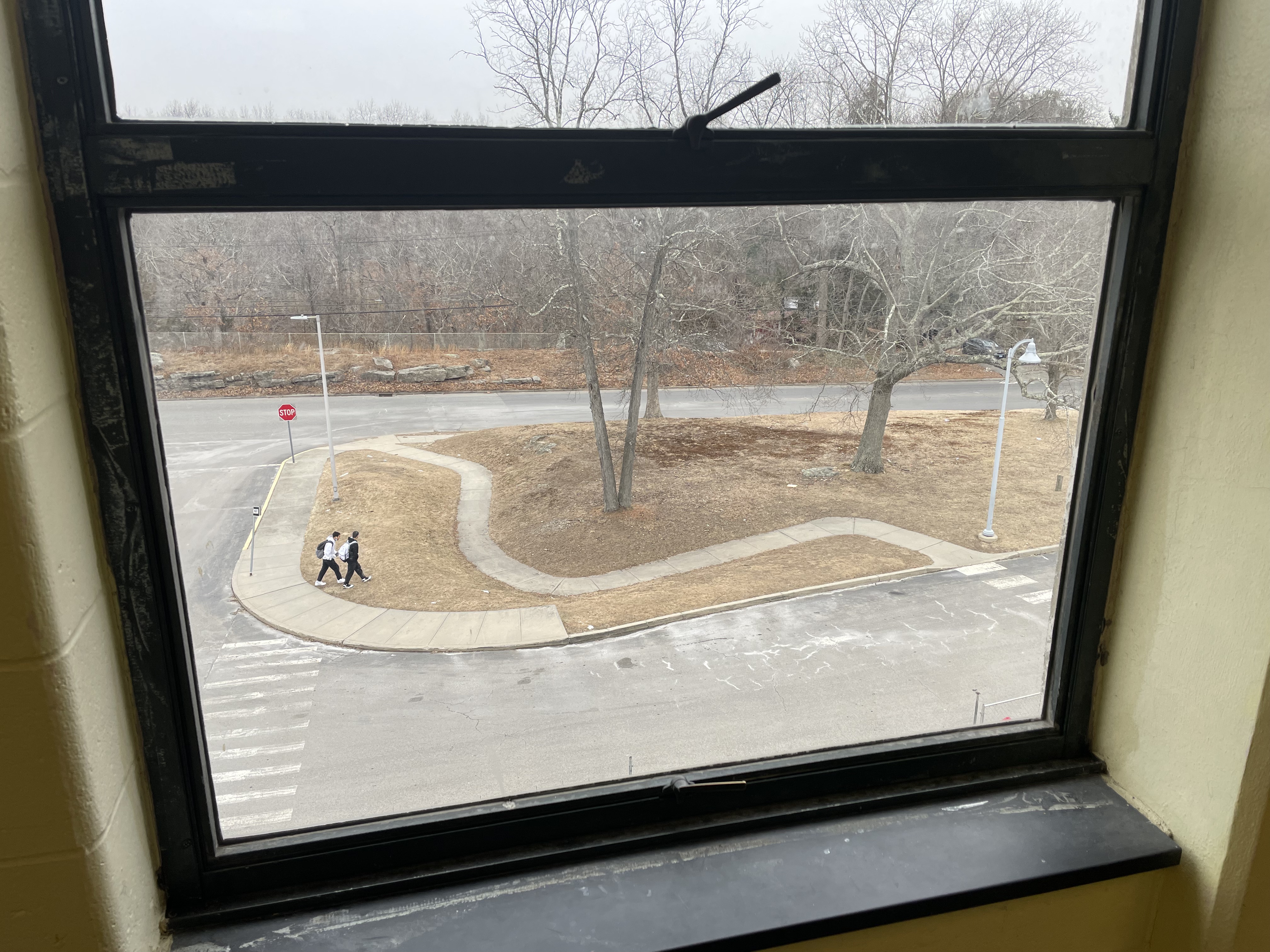 WARM-UP ACTIVITY Before we do a self-portrait today, think of yourself as someone else. Think of yourself as a character in a story. Who is this person? What is their name? What kinds of things does this person do? What are they capable of? What qualities and characteristics does this person have? Make a quick sketch on a piece of paper of this character and list 3-4 words/phrases that describe them.
WARM-UP ACTIVITY Before we do a self-portrait today, think of yourself as someone else. Think of yourself as a character in a story. Who is this person? What is their name? What kinds of things does this person do? What are they capable of? What qualities and characteristics does this person have? Make a quick sketch on a piece of paper of this character and list 3-4 words/phrases that describe them. MAIN LESSON L. is attempting to lift a six-foot table and launch it at his classmate (This, I assume was the outcome of what I witnessed earlier, namely, L. and Z. throwing pencils at each other. I told them they knew better and immediately took away their materials and excluded them from participating in the project, which might have contributed to the following situation...). One look in his eyes and I can tell he is not present. His body is responding to signals that span time and space in ways that he is unaware. I recognize my need to instantly drop what I am doing—which is demonstrating to another student how to ignore someone’s hurtful words—and run across the room to him. In his moment of pure emotion, I need to restrain him before he hurts someone. I managed to get behind him and hold him in a bear hug while grabbing his wrists. The physical power of an 8-year-old charged by lizard brain throws me off balance as we both teeter backwards, nearly falling over. My own adrenaline is coursing as another student exultantly announces to the class that they must all exit the classroom. As I watch 20 second-graders scatter into the hallway screaming, L. and I are gasping next to the overturned table and chairs.
Through our labored breaths and the bird-like racing of L.’s heart, a stillness follows that reveals to me my authentic role—that of protector—from his demons, from a system that views him as a liability, from his fellow students, from himself. Out of whatever circumstances that have brought L. to this moment of darkness, I realize there is only one thing I can do to help him move forward: “You are ok,” “You are ok,” “You are ok,” I croon with a slowing cadence.
After a minute goes by, we separate and stand up. The darkness momentarily clears.